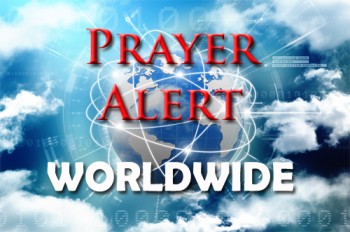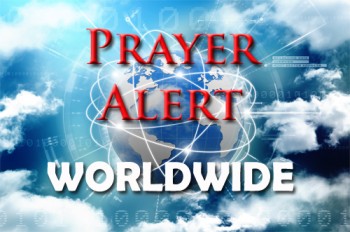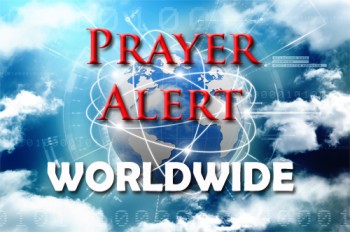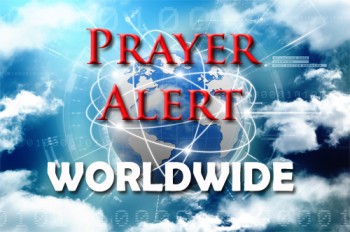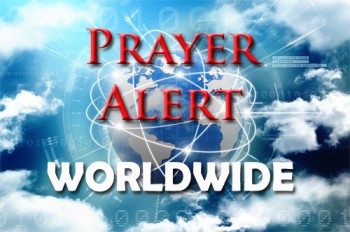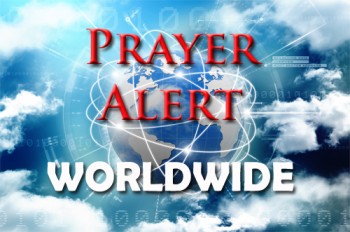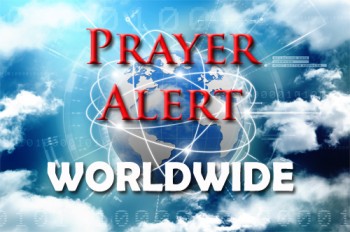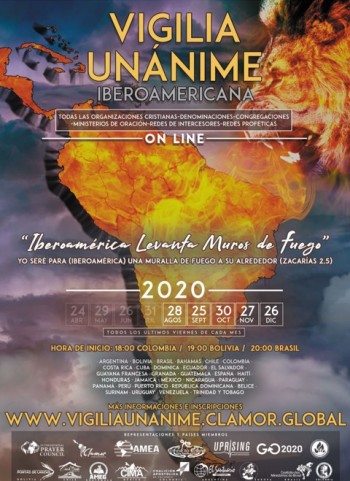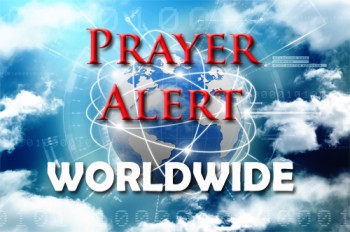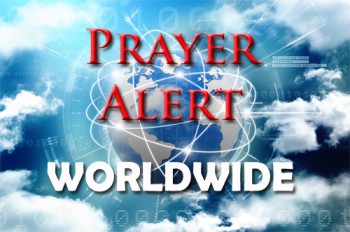Displaying items by tag: Latin America
Venezuela: thousands fleeing violence
Thousands of Venezuelans have fled to Colombia in the past month to avoid fighting. They are running away from intense armed clashes between Venezuela’s army and Colombia’s rebel groups. Refugees say they were pushed out of their homes by the military and describe human rights abuses, disappearances, and home break-ins. A prominent Colombian guerrilla fighter, Jesus Santrich, was killed in Venezuelan territory as part of the ongoing conflict. For a video of the extent of the troubles go to. Venezuela's ongoing economic and political turmoil could result in the biggest displacement of people in the world in recent years. It is an issue that has repercussions for the whole region. While many countries have acted to deter migrants, Colombia has taken a step in a radically different direction, granting nearly a million undocumented Venezuelans the right to stay for ten years.
Guatemala: prison inmates’ gang fight
500 riot police officers entered a prison after a riot broke out at the facility, in the municipality of Cantel. At least seven prisoners were killed in the fight between rival gangs: most of them were beheaded. The prison, 125 miles from the capital, was built to house 500 inmates but has more than 2,000. Police sources told local media one of the inmates had ordered the attack on rival gang members in retaliation for the murder of his wife, who had been shot dead by two men on motorbikes hours earlier. According to the source, this man is serving a sentence for murder. Almost half of the roughly 3,500 violent deaths a year in Guatemala are carried out by gangs.
Brazil: who controls the ‘lungs of Earth’?
Those fighting to halt climate change call the Amazon rainforest the ‘lungs of Earth,’ and Brazil's current president has made his country a chain-smoker. A healthy Amazon is crucial for the fight against climate change. Human activity is pumping unsustainable amounts of carbon into the atmosphere, trapping enough heat to warm the planet and profoundly disrupt the climate. Trees, and the soils they grow in, store carbon that might otherwise reach the atmosphere, but cutting down or burning them releases more carbon into the air, making Amazon deforestation a problem for the entire planet. President Jair Bolsonaro has made matters much worse for the remaining 60% of Amazon tree cover. He deprived environmental protection agencies of funding and manpower, allowing farmers to cut and burn trees to open land for farms and cattle ranches. But now Joe Biden’s climate envoy is engaged in an international effort to raise $20 billion for Brazil's environmental protection agency, only to be given if deforestation is reduced.
USA / Central America: many are fleeing
The US homeland security secretary said they are expelling most single adults and families but not unaccompanied children. An average of 565 lone children are crossing the border daily. The highest number of families come from Honduras, the most unstable Central American country. Many lone children come from Guatemala, where youth population and unemployment are high and smuggling networks are developed. The transition from Donald Trump to Joe Biden has persuaded would-be migrants that a limited window now exists for US entry. In the Trump years human traffickers were thwarted, but they are now eager for more. Also, two major hurricanes have inflicted severe human and economic damage in Central America. Taking to the road to find a better life is dangerous, especially for children. Most flee from violence, corruption, and poverty all around them. Doctors Without Borders said 75% of migrants with children were fleeing threats of violence, including forced recruitment by gangs.
Venezuela: Christians forced to eat their Bibles
Four Christian men were beaten and scarred by knives carving Xs on their skin, and forced to eat sheets of the Bible in a recent shocking incident in Venezuela. The perpetrators are believed to oppose the work of Restoration House, a church-led drug rehabilitation programme in the city of Libertador, which the four victims had joined. Threats had been made against the house before the attack. In Latin America, the illegal activities of drug gangs are endangered by churches who deter people from criminality. This can lead to opposition, which explains this latest Venezuelan incident. The men have since been discharged from hospital. One remains in particularly poor health, with injuries to his lungs and head and two broken ribs. Two others have their legs and arms in casts. Pray for God to surround them with His healing presence, and that they will continue their recoveries from drug addiction and grow in their walks with Jesus.
Peru: seven days of upheaval
A lot can happen in seven days. A president was ousted. An interim president resigned. A new president was sworn in. The nation is in political upheaval, with Peruvians in protests marked by accusations of police brutality and a devastating economic decline. They also have the third highest per capita Covid mortality rate. Beneath these pressing issues lies an even more critical spiritual reality. Though 94% claim to be Christian, the majority have yet to know the life-changing love, freedom, and forgiveness of Jesus. Most adhere to traditional Catholicism, often mixed with indigenous beliefs. Fifteen people groups remain tragically unreached by the Gospel. See
Colombia: hidden church in huts, mountains, coffee plantations
For many Christians, times, location and form vary greatly as they seek to worship God safely. On Sunday morning in a village in Colombia Gabriel, an indigenous Christian wakes up to prepare a service which he will lead later that day. Shortly afterwards, he leaves his house and goes to a deserted place, in the middle of the forest, hidden from everyone. In his village, being a Christian results in persecution. Christians do everything to keep the peace by participating in local activities, meetings, and traditional rituals. The latter is an obligation that Christians must fulfil, otherwise they are arrested, questioned, punished and detained until they renounce their faith. They want to stop engaging in traditional rituals that go against Christianity, but it is not easy. They gather in hidden places to pray, sing, and study the Bible.
Latin-American Continuous Prayer Vigil – 24 November
‘Lifting up a fire wall and rampart over Iberoamérica’
Nations are in the midst of a global shakeup, a global hiatus due to the Crisis caused by the Covid-19 Pandemic. Many people in the nations are afraid and look for answers. Now more than ever it is time to pray for people, attend to their needs and share the Gospel in the Nations of the Earth.
We recognize that historical moments of crisis have created the perfect atmospheres for the GREAT REVIVALS and the Uprising of the Great Harvests of souls for our beloved Jesus Christ and the expansion of his Kingdom throughout history.
We believe that this is the moment when the Church must arise and take its role as The mouth, the feet, the hands of the Lord Jesus Christ to respond to a humanity that has no hope, that is in total confusion, and that awaits a resolution of their leaders or rulers.
We are living one of the most important prophetic moments in this decade , we see how in the midst of the shaking of the Nations, in a Global Pause, our precious Holy Spirit is moving strategically, bringing Revival in the midst of families, communities and nations . It is time to complete the Great Commission assigned by our Master. The Harvest is ready in the fields, the Angels have already been sent (Mark 13:39) .
The Latin American Prayer Council (CLAMOR) as part of the World Prayer Council (International Prayer Council) invites you to participate in a continuous Continental Vigil that will begin on April 24, and will be held every last Friday of each month until the end of the year 2020.
We want to agree to pray all the nations of Latin America in UNANIMITY , as a single VOICE; believing that something powerful will begin to happen this April. We will pray that the Redeeming gift of the Father, in the intervention of Jesus Christ and in the power of his Holy Spirit, hears our Prayer, receives our repentance and heals our lands. 2 Chronicles 7: 13-14.
We believe that this is the time of the Resurgence of The Ekklesia, a time to give hope to the needy, to the unreached groups of our continent, of the fulfillment of promises, of the manifestation of His mercy, forgiveness, grace. It is the divine time of the spiritual, economic, political and social restart of our peoples.
We cannot lose the window of opportunity that Covid-19 and the World Crisis is providing us to lift the harvest of souls in the fields that are already ready ... IT'S TIME TO PRAY CONTINENTALLY!
More info and sign-up: https://vigiliaunanime.clamor.global/index.php/en/
Latin America: call to pray as Covid cases surpass ten million
Latin American churches have played a key role in helping those affected by coronavirus. Their role goes beyond running food and medicine banks. ‘It’s a case of being there for people and keeping in contact, without a religious agenda. Sometimes all you can do is hold somebody's hand in the dark.’ The Most Rev Gregory Venables said: ‘Pray that we will have wisdom in accompanying people through the next weeks and months. Because it's not going to go away quickly, we've got to act wisely.’ This area has five out of the ten countries globally with most coronavirus cases. There's illness and insecurity. Most Latin American countries are economically bankrupt. People live hand to mouth; they have nothing. The situation is very desperate. Some of the longest lockdowns in the world and strict rules don’t seem to have stopped the spread.
USA: Hurricane Delta
On 6 October Louisiana’s governor warned, ‘It is time to prepare for Hurricane Delta as it intensifies in the Caribbean. It is common for people to experience hurricane fatigue during a busy season, but we need everyone to take this threat seriously.’ Delta is the 10th named storm in America this season. After tearing down trees and power lines across Mexico’s Yucatan peninsula, Delta grew in size as it approached the northern Gulf Coast on 9 October. Life-threatening storm surges and hurricane-force winds are expected in the Louisiana coast, with as much as 12 inches of rain in places. State and local officials are shoring up levees, sandbagging and taking other protection measures in areas still recovering from Hurricane Laura, which roared ashore in August. Over 6,600 Laura evacuees remain in hotels around the state, mainly in New Orleans, because their homes are too heavily damaged to return. Pray for their peace of mind.
